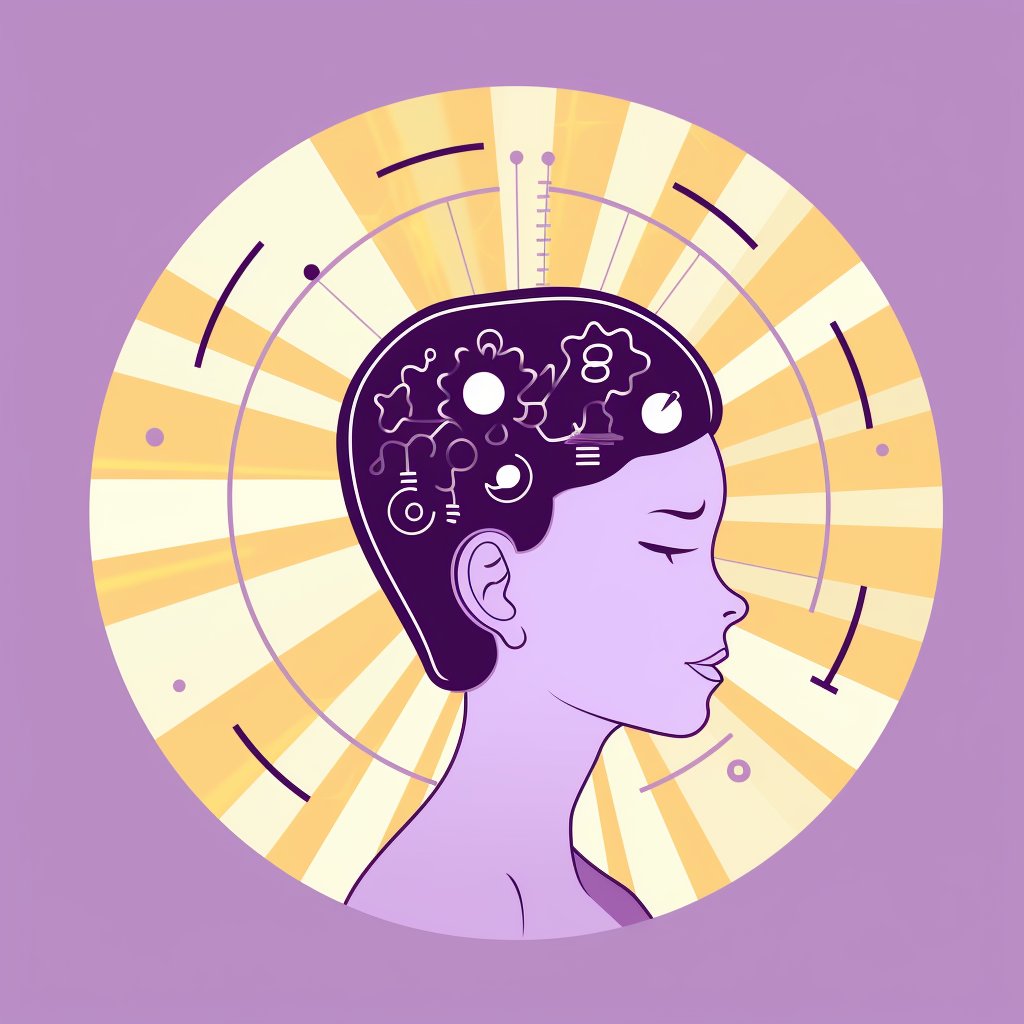ENTJ and ADHD | Misconception, Diagnosis & Treatment
✔Medically Reviewed by Saeideh Azizmohammadi, PhD, PsyD

If you or someone you know took the MBTI test and identified as ENTJ (Extroverted, Intuitive, Thinking, Judging), there’s a high chance you’ve encountered the term ADHD (Attention Deficit Hyperactivity Disorder) linked to this personality type.
This is a common misconception, though: being ENTJ and having ADHD are not the same thing.
This mistaken connection happens with other MBTI types as well.
The reason behind this misunderstanding stems from assumed similarities between certain personality traits and mental health conditions.
Here’s the point: these similarities don’t automatically mean someone has ADHD.
This blog post aims to clear up these key confusions:
- Why don’t these similarities prove a connection?
- Why is it inaccurate to say being ENTJ is the same as having ADHD?
- How can you tell the difference between personality traits and ADHD symptoms?
- Most importantly for ENTJs, how can ADHD manifest and be managed?
By exploring these questions, you’ll gain a deeper understanding of ADHD and how it might present itself in someone with the ENTJ personality.
This way, you can move beyond assumptions and gain a richer understanding of yourself or your ENTJ loved one.
Before moving forward…
You should know that there are connections between MBTI preferences and mental health tendencies. But, they are just correlations, not guarantees, and other factors likely have a stronger influence.
The research on MBTI and mental health correlations, while interesting, doesn’t paint the whole picture. MBTI’s true strength lies in its potential to be a tool for self-awareness and personal growth. Not for diagnosing mental health conditions.
Understanding ADHD better
Attention-deficit/hyperactivity disorder (ADHD), as defined by the National Institute of Mental Health (NIMH), is a chronic condition marked by an ongoing pattern of inattention and/or hyperactivity-impulsivity that interferes with daily functioning or development.
People with ADHD experience a consistent pattern of symptoms that fall into three main categories: inattention, hyperactivity, and impulsivity.
People with inattentive ADHD may struggle to:
- Stay focused on tasks, especially those they find uninteresting or repetitive.
- Pay close attention to details, often making careless mistakes in schoolwork or other activities.
- Sustain attention during play, conversations, lectures, or lengthy reading.
- Follow through on instructions or finish tasks at school, work, or home.
- Organize tasks and activities, manage time, and meet deadlines.
- Remember things necessary for daily activities, like homework, chores, or appointments.
- Resist distractions from unrelated thoughts or stimuli.
Note: These inattentive behaviors are not due to defiance or lack of comprehension.
People with hyperactive ADHD may exhibit:
- Fidgeting and squirming while seated, even in situations where it’s expected to be still.
- Excessive restlessness or feeling constantly “on the go.”
- Running about or climbing in situations where it’s inappropriate.
- Difficulty engaging in leisure activities quietly.
- Excessive talking, blurting out answers before questions are finished, or interrupting others.
Note: In adults, hyperactivity may manifest as extreme restlessness or talking excessively.
People with impulsive ADHD may experience:
- Difficulty waiting their turn or waiting for gratification.
- Acting without thinking or having difficulty with self-control.
- Interrupting others or making important decisions without considering long-term consequences.
ADHD can manifest differently in each person. Some people might experience symptoms primarily from one category (inattentive, hyperactive, or impulsive), while others experience a combination. The severity of symptoms and how they impact daily life are also important factors.
Note: ADD (Attention Deficit Disorder) is an older term that’s no longer widely used in diagnosis. It typically referred to the inattentive presentation of ADHD, characterized by symptoms like disorganization, difficulty focusing, and forgetfulness.
| Read the full article: ADHD in Adults – Symptoms and Effective Managing Strategies
Why being ENTJ and having ADHD look similar

There’s a reason why people might mistakenly connect the ENTJ personality with ADHD. Let’s break down some similarities:
- Drive and Focus: ENTJs are known for their ambition and goal-oriented nature. They excel at directing their energy and thrive on challenges. This drive can be misinterpreted as the intense focus sometimes seen in hyperfocus, a symptom of ADHD where someone becomes completely absorbed in a task.
- Restlessness and Initiative: ENTJs are naturally energetic and enjoy taking charge. They might appear restless or fidgety, which can be a sign of ADHD hyperactivity. Additionally, their initiative and tendency to jump into action can be mistaken for impulsivity, another ADHD symptom.
- Attention Deficit and Organization: While ENTJs value structure and organization, their focus is often on the bigger picture and long-term goals. This can sometimes lead to difficulties with maintaining focus on details or completing mundane tasks, which can be misinterpreted as a core symptom of inattentive ADHD.
These are just a few similarities, and they don’t paint the whole picture.
Mental health conditions are complex, and diagnosis requires a professional assessment. Simply observing someone’s behavior and personality traits isn’t enough to determine if they have ADHD.
| Related: ENTJ and Mental Illnesses
Differences between ENTJ traits and ADHD symptoms

It’s easy to fall into the trap of mistaking ENTJ personality traits for ADHD symptoms, especially when we only focus on surface-level similarities.
To understand the complexities of ADHD in ENTJs, we need to consider factors beyond personality traits. These factors include duration, context, and impact.
Therapists adhere to standardized criteria outlined in the Diagnostic and Statistical Manual of Mental Disorders (DSM-5) to ensure consistent and accurate evaluation.
This process involves gathering information through several methods:
- Comprehensive assessment: This covers your symptoms, medical history, family history, and social and academic functioning.
- Rating scales and questionnaires: You and others who know you well will complete these to assess your ADHD symptoms.
- Psychological tests: These assess your attention, processing speed, and executive function.
To help them determine:
- Severity and Persistence: ADHD symptoms are not occasional inconveniences. They cause significant impairment in daily life, persisting for at least six months, and are present across multiple settings (e.g., home, school, work). In addition, for a diagnosis of ADHD, you must exhibit at least six persistent symptoms of inattention and/or six persistent symptoms of hyperactivity-impulsivity.
- Impact on Functioning: The focus is on how symptoms affect your ability to function in important areas like work, school, or relationships.
- Developmental History: Ideally, symptoms should have been present since childhood.
And they may also recommend tests to roll out other possible medical conditions that can mimic ADHD symptoms.
To better understand why it’s wrong to mistake being ENTJ with having ADHD, let’s look at the table below:
| Feature | ENTJ Trait | ADHD Symptom |
| Drive and Focus | Ambitious, goal-oriented, thrives on challenges Intentional, driven by desire, can be controlled | Intense focus (hyperfocus), difficulty shifting focus and/ or difficulty maintaining focus Maybe intentional but can’t be controlled |
| Restlessness | Energetic, takes charge | Fidgety, hyperactive, difficulty staying still |
| Initiative | Takes initiative, jumps into action | Impulsive, acts without thinking |
| Organization | Values structure and organization (big picture) | Difficulty with details and routine tasks |
| Forgetfulness | May forget minor details due to bigger picture focus | Frequent forgetfulness of tasks, belongings, or instructions |
| Duration | Varies depending on situation | Persistent pattern across multiple settings (at least 6 months) |
| Context | Purposeful, driven by goals | Disruptive, hinders daily functioning |
| Impact | Manageable, often positive outcomes | Significant impairment in daily life (work, school, relationships) |
| Developmental History | No childhood history of significant difficulties | Ideally, evidence of difficulties since childhood |
| Suggestion: Echolalia in ADHD – Is Echolalia a Symptom of ADHD?
ENTJs with ADHD
Now that we’ve explored ADHD symptoms and their superficial similarities with ENTJ traits, don’t forget that for an ADHD diagnosis, at least six symptoms need to be present for at least six months and cause significant disruption in daily life.
If you’re an ENTJ diagnosed with ADHD, it’s better to:
- Prioritize the personalized treatment plan developed with your therapist which includes medication, therapy techniques, or a combination of both, tailored to your specific needs and goals.
- Break down large goals into smaller, manageable steps. This can help maintain focus and avoid feeling overwhelmed.
- Use your natural energy for physical activity or short mindfulness breaks to refocus.
- Set reminders, alarms, and calendar alerts to stay on track and avoid forgetfulness.
- Create clear routines and schedules for tasks that require sustained attention.
- Having someone to check in with. It can help you stay on track with your goals.
For friends, partners, and family members supporting an ENTJ with ADHD:
- Learn more about ADHD to better understand the challenges they face.
- ADHD symptoms can be frustrating for both the individual and those around them. Patience and understanding are key.
- Communicate openly and clearly, avoiding criticism or blame.
- Help them break down tasks, manage schedules, or set reminders.
- Promote regular sleep, exercise, and a balanced diet for overall well-being.
- Recognize and celebrate their achievements, no matter how small.
This also might be helpful:
HealWiser’s last piece of advice…
There’s no inherent connection between being an ENTJ and having ADHD. While some surface-level similarities exist, diagnosing a complex mental health disorder like ADHD requires a thorough evaluation by a qualified therapist.
Be cautious about carelessly labeling yourself or others based on personality traits alone. If you suspect you or someone you know might have ADHD, regardless of their MBTI type, seeking professional help is the first step toward managing symptoms and supporting your loved ones.
Sharing your experiences can provide valuable insights and emotional support. So…
…share your story with Heal Wiser and others in the comments section below this post.






